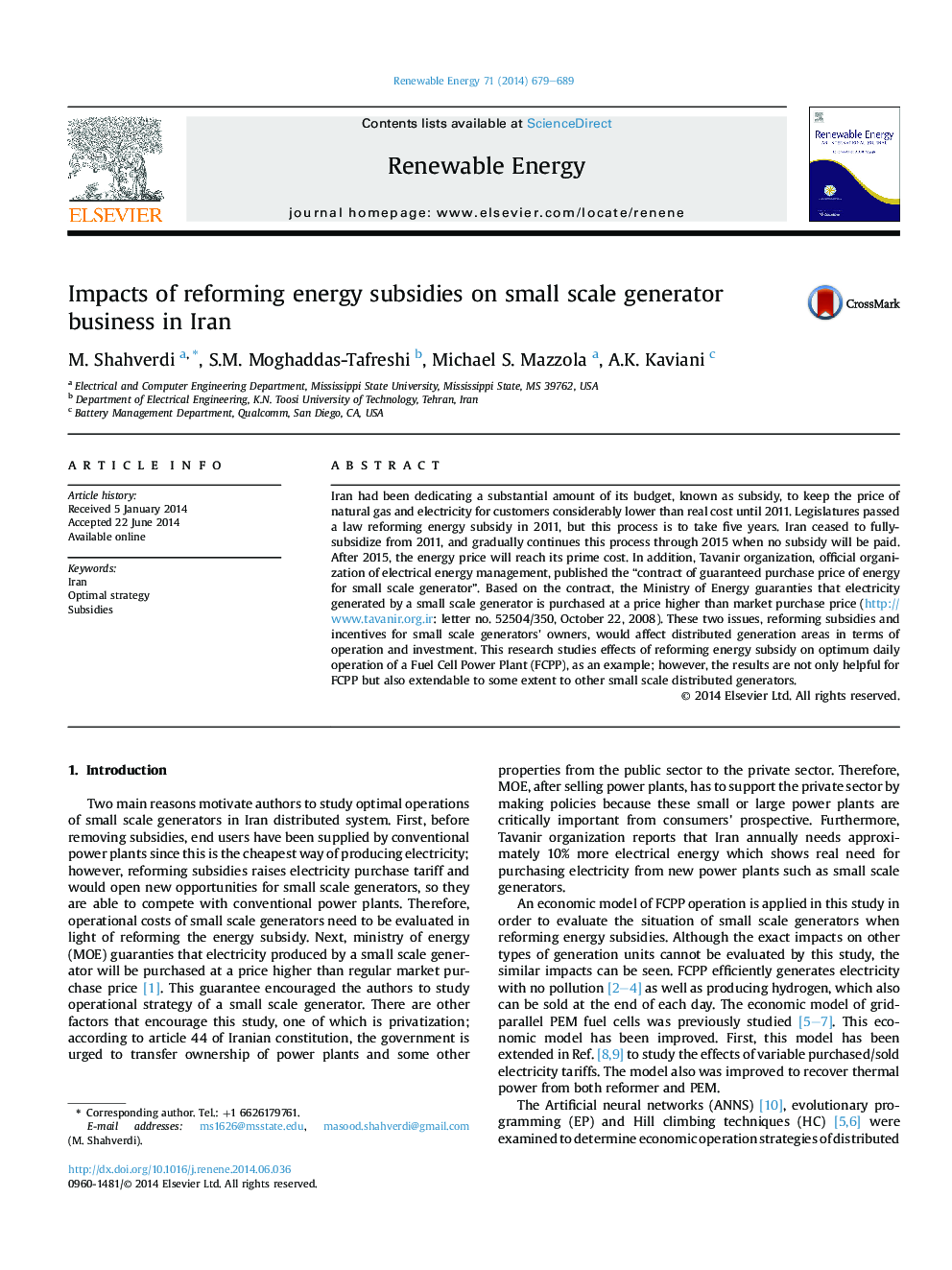| Article ID | Journal | Published Year | Pages | File Type |
|---|---|---|---|---|
| 6768443 | Renewable Energy | 2014 | 11 Pages |
Abstract
Iran had been dedicating a substantial amount of its budget, known as subsidy, to keep the price of natural gas and electricity for customers considerably lower than real cost until 2011. Legislatures passed a law reforming energy subsidy in 2011, but this process is to take five years. Iran ceased to fully-subsidize from 2011, and gradually continues this process through 2015 when no subsidy will be paid. After 2015, the energy price will reach its prime cost. In addition, Tavanir organization, official organization of electrical energy management, published the “contract of guaranteed purchase price of energy for small scale generator”. Based on the contract, the Ministry of Energy guaranties that electricity generated by a small scale generator is purchased at a price higher than market purchase price (http://www.tavanir.org.ir: letter no. 52504/350, October 22, 2008). These two issues, reforming subsidies and incentives for small scale generators' owners, would affect distributed generation areas in terms of operation and investment. This research studies effects of reforming energy subsidy on optimum daily operation of a Fuel Cell Power Plant (FCPP), as an example; however, the results are not only helpful for FCPP but also extendable to some extent to other small scale distributed generators.
Keywords
Related Topics
Physical Sciences and Engineering
Energy
Renewable Energy, Sustainability and the Environment
Authors
M. Shahverdi, S.M. Moghaddas-Tafreshi, Michael S. Mazzola, A.K. Kaviani,
